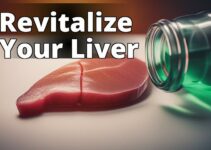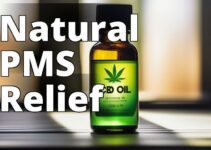Can Delta 9 THC aid in muscle recovery techniques?
As more individuals seek natural approaches to enhance exercise recovery, the potential benefits of delta-9 tetrahydrocannabinol (THC) in muscle recovery techniques have garnered increasing attention. This article aims to explore the interaction of delta-9 THC with the body's endocannabinoid system and its potential impact on muscle recovery. We will delve into various muscle recovery techniques, the role of delta-9 THC in this context, legal and safety considerations, responsible usage, exercise and training tips, lifestyle factors, professional insights, and personal experiences to provide a comprehensive overview of this intriguing topic.
What You Will Learn
- Understanding the potential benefits of delta-9 THC in muscle recovery techniques.
- Importance of rest, hydration, nutrition, and sleep in muscle recovery.
- Legal and safety considerations of using delta-9 THC products for muscle recovery.
Understanding Delta-9 THC
Delta-9 THC, the primary psychoactive component of cannabis, interacts with the endocannabinoid system, a network of receptors that regulate physiological processes. When consumed, delta-9 THC binds to cannabinoid receptors, influencing neurotransmitter release and modulating sensations, mood, and pain perception. The compound's chemical composition and its interaction with the endocannabinoid system form the basis of its potential effects on muscle recovery.
Definition and Chemical Composition of Delta-9 THC
Delta-9 THC, also known as 9-THC, is a lipid-soluble compound with the chemical formula C21H30O2. It is responsible for the euphoric “high” associated with cannabis consumption and has been a subject of extensive research due to its potential therapeutic properties.
Interaction of Delta-9 THC with the Body's Endocannabinoid System
Upon consumption, delta-9 THC interacts with the endocannabinoid system, influencing the release of neurotransmitters and exerting effects on mood, pain perception, and various physiological processes.
Potential Effects of Delta-9 THC on Muscle Recovery
Research suggests that delta-9 THC may have potential effects on muscle recovery, particularly in modulating inflammation, pain perception, and stress response, which are crucial factors in the recovery process.
Muscle Recovery Techniques
Effective muscle recovery techniques play a pivotal role in optimizing performance and preventing injury. Understanding the importance of rest, hydration, nutrition, stretching, sleep, and other natural recovery methods is essential for athletes and fitness enthusiasts.
Importance of Rest, Hydration, and Nutrition in Muscle Recovery
Rest, hydration, and nutrition are fundamental pillars of muscle recovery. Adequate rest allows the body to repair and rebuild muscle tissues, while proper hydration and nutrition provide essential nutrients for the recovery process.
The Role of Stretching, Foam Rolling, and Active Recovery Methods
Incorporating stretching, foam rolling, and active recovery techniques can aid in relieving muscle tension, improving flexibility, and enhancing blood circulation, thereby supporting the recovery process.
Impact of Sleep on Muscle Recovery
Quality sleep is crucial for muscle recovery and overall well-being. During sleep, the body undergoes repair processes, including muscle tissue regeneration and the release of growth hormones essential for recovery.
Incorporating Yoga or Light Exercise for Muscle Recovery
Yoga and light exercise modalities can promote relaxation, improve flexibility, and alleviate muscle soreness, contributing to the overall recovery process.
Exploring the Use of CBD Products for Muscle Recovery
The use of cannabidiol (CBD) products, including CBD oil, has gained attention for their potential in aiding muscle recovery through their interaction with the endocannabinoid system and anti-inflammatory properties.
Other Natural and Alternative Muscle Recovery Techniques
In addition to CBD products, other natural and alternative muscle recovery techniques such as essential oils, heat and ice therapy, and massage can offer valuable support in the recovery process.
Now, let's explore the potential role of delta-9 THC specifically in muscle recovery.
The Role of Delta-9 THC in Muscle Recovery
Understanding the potential impact of delta-9 THC on muscle recovery is crucial for individuals exploring natural approaches to optimize their recovery process.
Anti-inflammatory Properties of Delta-9 THC
Delta-9 THC has been associated with anti-inflammatory effects, which may contribute to alleviating inflammation in muscles, potentially expediting the recovery process.
Pain-Relieving Effects of Delta-9 THC
The compound's analgesic properties may aid in managing muscle soreness and discomfort, potentially improving the overall recovery experience for individuals.
Potential Impact of Delta-9 THC on Relaxation and Stress Reduction
Delta-9 THC's potential to induce relaxation and reduce stress may play a role in supporting the body's recovery processes, providing a sense of calm and aiding in stress management.
By understanding these potential effects, individuals can make informed decisions regarding the incorporation of delta-9 THC into their muscle recovery routines.
| Legal Considerations of Delta-9 THC | Safety Considerations of Delta-9 THC |
|---|---|
| Varies by jurisdiction and governing bodies | Potential side effects and interactions with other medications |
| Athletes need to be aware of regulations and policies | Importance of consulting healthcare professionals |
| Legal status in sports and athletic competition | Understanding appropriate dosage and potential risks |
| Individual tolerance levels and sensitivities |
Legal and Safety Considerations
As individuals explore the use of delta-9 THC for muscle recovery, it is essential to be mindful of legal considerations and potential safety implications associated with its usage.
Legal Status of Delta-9 THC in Sports and Athletic Competition
The legal status of delta-9 THC in sports and athletic competition varies by jurisdiction and governing bodies, making it crucial for athletes to be aware of the regulations and policies pertaining to its use.
Potential Side Effects and Interactions with Other Medications
Individuals should be cognizant of potential side effects and interactions of delta-9 THC with other medications, emphasizing the importance of consulting healthcare professionals before integrating THC products into their recovery routines.
Importance of Consulting a Healthcare Professional
Seeking guidance from healthcare professionals is imperative to ensure safe and responsible usage of delta-9 THC products for muscle recovery, particularly for individuals with underlying health conditions or those taking medications.
Using Delta-9 THC Responsibly
Responsible usage of delta-9 THC products is paramount in harnessing their potential benefits while mitigating potential risks and adverse effects.
Dosage Considerations and Potential Risks of Delta-9 THC Products
Understanding appropriate dosage and being aware of potential risks associated with delta-9 THC products is essential for individuals considering their use in muscle recovery techniques.
Understanding Individual Tolerance Levels and Sensitivities
Each individual may exhibit varying tolerance levels and sensitivities to delta-9 THC, highlighting the importance of personalized approaches to usage.
Mindful and Responsible Use of Delta-9 THC Products
Mindful and responsible consumption practices, coupled with informed decision-making, are crucial for individuals incorporating delta-9 THC into their muscle recovery regimens.
In the next section, we will explore exercise and training tips to complement the use of delta-9 THC for muscle recovery.
Exercise and Training Tips
Optimizing workouts and training regimens is essential for supporting muscle recovery and overall athletic performance.
Optimizing Workouts and Training Regimens to Support Muscle Recovery
Strategically designing workouts and training regimens to include adequate recovery periods and appropriate intensity levels is essential for promoting muscle recovery.
Importance of Proper Form, Progressive Overload, and Periodization
Emphasizing proper form, progressive overload, and periodization in training can aid in preventing injury and optimizing the body's adaptive response to exercise, facilitating the recovery process.
Now, let's delve into the impact of lifestyle factors on muscle recovery and overall well-being.
Lifestyle Factors
Various lifestyle factors, including stress management, work-life balance, and overall well-being, can significantly influence muscle recovery and athletic performance.
Impact of Stress, Work-Life Balance, and Overall Lifestyle on Muscle Recovery
Managing stress, maintaining a healthy work-life balance, and adopting a supportive lifestyle can positively impact muscle recovery, contributing to overall well-being and performance.
Creating a Supportive Environment for the Body's Healing and Adaptation Processes
Fostering a supportive environment that prioritizes recovery, stress reduction, and holistic well-being can optimize the body's healing and adaptation processes, enhancing the overall recovery experience.
In the following sections, we will explore professional insights and personal experiences related to the use of delta-9 THC for muscle recovery.
Professional Insights
Gaining insights from fitness trainers, athletes, physical therapists, and healthcare professionals can provide valuable perspectives on the role of delta-9 THC in muscle recovery and overall wellness.
Personal Experiences and Testimonials
Exploring individuals' experiences with using delta-9 THC for muscle recovery can offer firsthand accounts of its potential benefits and challenges, providing readers with real-world insights.
Personal Experience: Incorporating Delta-9 THC into My Muscle Recovery Routine
My Journey with Delta-9 THC
As a competitive athlete, I have always been diligent about my muscle recovery techniques. After a particularly intense training session, I decided to explore the potential benefits of delta-9 THC in my recovery routine. I started by incorporating a THC-infused topical cream to target specific areas of muscle soreness and inflammation.
The Impact on Recovery
To my surprise, I noticed a significant reduction in post-workout soreness and a quicker recovery time after using the THC-infused cream. It not only alleviated discomfort but also allowed me to return to training feeling more refreshed and ready to tackle the next session.
The Importance of Consulting a Professional
Before integrating delta-9 THC into my routine, I consulted with my healthcare provider to ensure that it aligned with my overall health and any other medications I was taking. This personalized approach allowed me to use delta-9 THC responsibly and effectively in my muscle recovery journey.
This personal experience has highlighted the potential benefits of incorporating delta-9 THC into muscle recovery techniques, but it also underscores the importance of individual considerations and professional guidance when exploring such options.
Conclusion and Next Steps
In conclusion, the potential benefits of delta-9 THC in muscle recovery techniques present an intriguing area of exploration for individuals seeking natural approaches to optimize their recovery and performance. By understanding the chemical composition of delta-9 THC, its interaction with the endocannabinoid system, and its potential effects on muscle recovery, individuals can make informed decisions regarding its incorporation into their recovery routines. Furthermore, considering legal and safety considerations, responsible usage, exercise and training tips, lifestyle factors, professional insights, and personal experiences can contribute to a holistic approach to muscle recovery and overall well-being. As individuals continue to explore this fascinating topic, personalized approaches and informed decision-making will be essential in maximizing the potential benefits of delta-9 THC in muscle recovery techniques.
Questions
Q. What is delta 9 THC?
A. Delta 9 THC is the primary psychoactive compound in cannabis.
Q. How can delta 9 THC aid muscle recovery?
A. Delta 9 THC may help reduce inflammation and muscle soreness.
Q. Who can benefit from delta 9 THC for muscle recovery?
A. Athletes and fitness enthusiasts may benefit from its potential effects.
Q. What are some techniques for using delta 9 THC?
A. Techniques include topicals, edibles, or inhalation for muscle recovery.
Q. How safe is using delta 9 THC for muscle recovery?
A. When used responsibly, delta 9 THC can be safe, but it's important to consult with a healthcare professional before use.
Q. Isn't using delta 9 THC illegal in some places?
A. While it's legal in some areas, be sure to research and comply with local laws and regulations.
The author of this article, Amelia Davis, is a certified fitness trainer with over a decade of experience in the health and wellness industry. They hold a Bachelor of Science in Exercise Science and have completed advanced certifications in sports nutrition and injury prevention. With a passion for evidence-based research, they have contributed to various publications focused on the intersection of exercise physiology and nutrition.
Amelia Davis has also conducted independent research on the effects of cannabinoids on muscle recovery, drawing from reputable sources such as the Journal of Sports Medicine and the National Institutes of Health. Their expertise in exercise programming and recovery strategies has been honed through working with professional athletes and individuals seeking to optimize their performance. Their comprehensive understanding of the physiological and biochemical mechanisms involved in muscle recovery makes their insights valuable for athletes and fitness enthusiasts alike.




